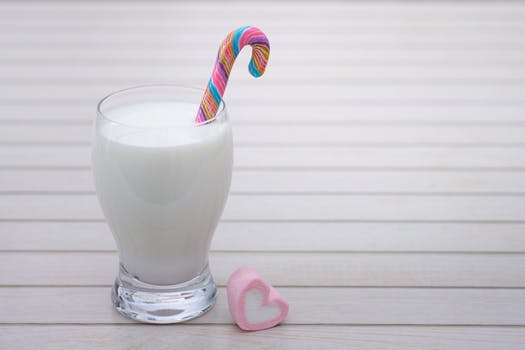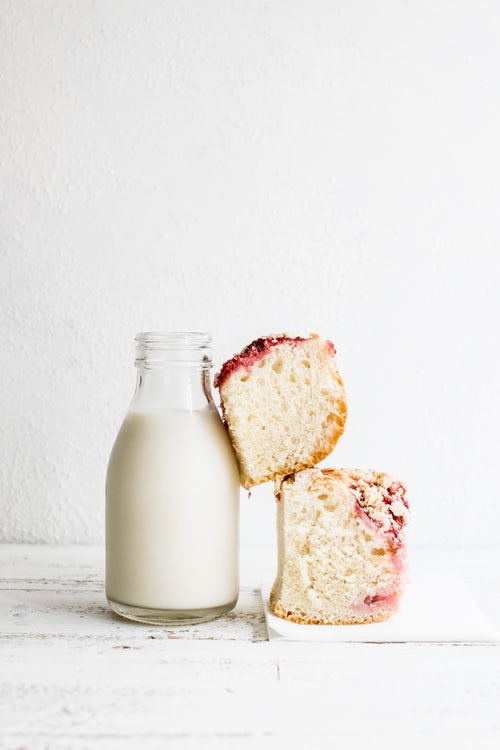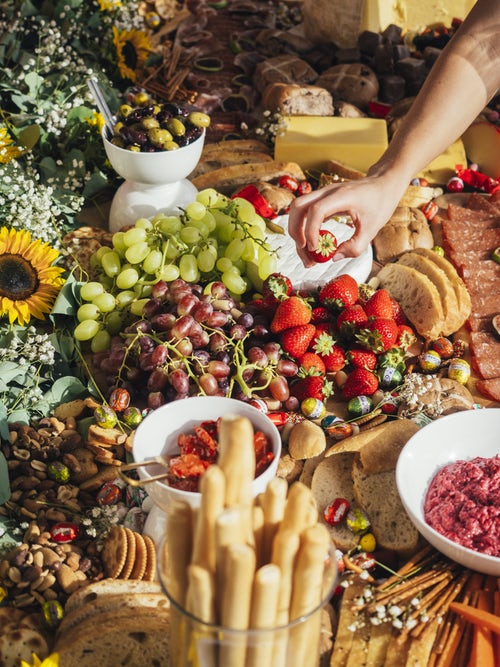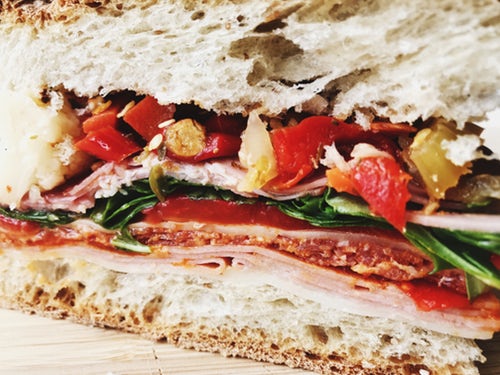The main reason dairy is promoted as part of a healthy diet is because it is a good source of a number of nutrients involved in the development and care of strong bones, including calcium, and the prevention of osteoporosis. Osteoporosis is the severe loss of bone density and strength and is responsible for many fractures and broken bones mostly later in life. Therefore, with the huge potential for damage that comes with not eating enough calcium and the great health advantage that comes with eating enough calcium it is clearly justified that we promote a healthy calcium intake. The question is are dairy foods the only foods you can eat to meet your calcium needs? Let’s find out.
When it comes to building and maintaining strong bones and preventing osteoporosis calcium plays a star role and it just so happens that dairy is the best food source of calcium in terms of the amount of calcium you get from a regular serving size. This means that while there are other foods which contain calcium, we tend to eat them in smaller amounts or may not be eating them at all or the calcium is not as readily absorbed and used by your body as the calcium found in dairy (more on this difference later).
How Much Calcium Do I Need?

Eating adequate calcium is important not just for your bones but also because calcium is crucial to the healthy functioning of your muscles, heart and brain.
The Recommended Daily Intake (RDI) for calcium for adults, that is the amount recommended to be consumed in a day to meet requirements for health is 1000-1300mg/day depending on your age and gender. A regular serve of dairy contains around 250mg of calcium which means you can meet your RDI for calcium by consuming 3-4 serves of dairy foods/day (As is currently recommended by the Australian Dietary Guidelines).
What Does a ‘Serve’ of Dairy Look Like?
A serve (~250mg calcium) of dairy is equivalent to eating:
40g cheese or
¾ cup of yoghurt or
1 cup of milk or
½ cup ricotta cheese.

What Other Foods Contain Calcium?

To get the same amount of calcium as you get eating one serve of dairy from alternative non-dairy foods you would need to eat 1tbsp poppy seeds or 3tbsp tahini or 60g sardines or 6 dried figs or ½ cup canned pink salmon with skin and bones or ¾ cup of almonds (the nut highest in calcium) or 100g tofu or 2-5 cups of legumes (depending on the type) or 10-12 servings of grains (for example 10-12 slices of bread or 5-6cups of rice) or 23 cups of broccoli.
You can see from this example list that there is quite a diverse array of foods outside of dairy which contain calcium, what you can also see is that the amount of food you would have to eat to consume a standard serve of calcium (~250mg) is varied with some foods containing high amounts and some containing low amounts. To account for this variation it is best to achieve your RDI for calcium through eating a variety of non-dairy foods. To give you an example of how this may look over the course of a day.
Breakfast: 2 slices of toast with 3tbsp tahini, honey, 1tbsp raisins and 1cup strawberries (Calcium: 300mg)
Snack: Muffin and 3 dried figs (Calcium: 125mg)
Lunch: 1 cup quinoa, 150g tofu, 2cups baby spinach leaves, 2tbsp hommos, 1tbsp pesto, ½ avocado and 1 orange + homemade bliss ball (Calcium: 500mg)
Snack: Toast with 2tbsp almond butter (Calcium: 111mg)
Dinner: 2 cups white beans (e.g. baked beans), olive oil, 2cups mixed vegetables, 1tbsp poppy seeds (Calcium: 600mg)
Dessert: Sticky date pudding
For a total calcium intake of 1736mg

Bioavailability of calcium

I will note here that getting enough calcium is a little more complicated than simply calculating the calcium within foods and eating to meet your RDI because the bioavailability of calcium, that is the amount of calcium your body is able to absorb from a food differs between foods. As an example, although there is around 27mg of calcium in 1cup of strawberries the amount of calcium your body absorbs and is therefore is available for your body to use is less than this. In general, your body is better able to absorb and use the calcium from dairy products than plant sources because the absorption of calcium is decreased by the content of other substances such as oxalic acid found only in plant foods.
The Verdict – Do I need to Eat Dairy to Meet My Calcium Needs?

I chose the foods in the above example of a day meal plan to purposefully include foods which are calcium rich to show you that meeting your RDI for calcium in this way can be done however, without this awareness, knowledge and planning it would be easy to not meet your calcium needs. Therefore, if you are relying on plant foods to meet your calcium (and other nutritional) needs for whatever reason, I suggest you seek professional help to plan this because the fact that it is achievable does not mean it will come naturally and it is important that it doesn’t get overlooked.
While dairy is an exceptionally nutrient rich food providing more protein, calcium, potassium, phosphorus, zinc and magnesium than any other food for the same number of calories1,2 it is possible to plan a healthy diet that will meet your nutrient requirements (including calcium) without relying on dairy if you choose to do so. However, it is worth knowing that in addition to calcium and the other important nutrients found in dairy products there are studies indicating that dairy products impart other significant health benefits including protection against the development of colon cancer4-6. Therefore, you must always consider your motives (reasons) for not eating dairy and if they are in line with your best nutritional and health interests.
If you are considering making dietary changes knowledge, planning and support are key because it’s not healthful to cut out dairy without replacing it with equivalent nutrient dense foods as the health repercussions of doing so are real.
With my whole heart I hope you found this information useful and inspiring.

Become Great. Live Great.
Bonnie.
Reference
- Caroli A, Poli A, Ricotta D, Banfi G, Cocchi D. Invited review: dairy intake and bone health: a viewpoint from the state of the art. J Dairy Sci. 2011. 94:5294-62.
2.Heaney RP. Calcium, dairy products and osteoporosis. J Am Coll Nutr. 2000;19(suppl):83S-99S.
- Larsson SC, Bergkvist L, Rutegard J, Giovannucci E, Wolk A. Calcium and dairy food intakes are inversely associated with colorectal cancer risk in the Cohort of Swedish Men. Am J Clin Nutr.2006; 83:667–73.
- Cho E, Smith-Warner SA, Spiegelman D, et al. Dairy foods, calcium, and colorectal cancer: a pooled analysis of 10 cohort studies. J Natl Cancer Inst.2004; 96:1015–22.
- Martinez ME, Willett WC. Calcium, vitamin D, and colorectal cancer: a review of the epidemiologic evidence. Cancer Epidemiol Biomarkers. Prev1998; 7:163–68.
- Hyman J, Baron JA, Dain BJ, et al. Dietary and supplemental calcium and the recurrence of colorectal adenomas. Cancer Epidemiol Biomarkers Prev.1998; 7:291–95.



